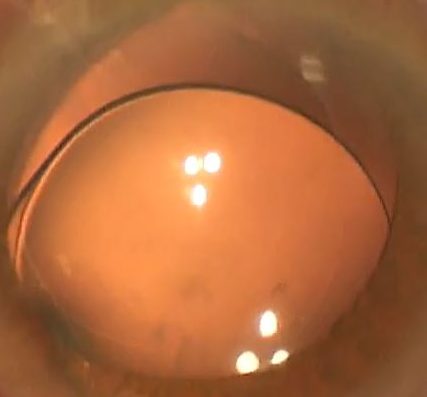Frequently Asked Questions

What is lens exchange?
Rarely, when you have had cataract surgery, the implanted intra-ocular lens can slip. This can happen soon after surgery, or years later. If the lens becomes significantly displaced, your vision starts to become affected, causing blurring and focusing problems.
A lens exchange procedure is an operation used to remove the dislodged implant and replace it with another one, correctly positioned. This frequently need to be done using special surgical techniques and specialised types of implant. Sometimes, it may be possible to re-position your existing lens implant without removing it.
If you require a lens exchange procedure, the specific approach required will depend on your individual situation and the options will will be discussed with you.
What happens during the procedure?
The operation takes about 1-1.5 hours and is usually done as a day case procedure. You will have some eye drops put in before surgery in order to dilate the pupils. A local anaesthetic will be administered, usually in the form of an injection of anaesthetic next to the eye. A mild sedative may be administered to allow you to feel more relaxed. We ask you to lie down on a bed and ensure that you are comfortable for the procedure. The area around the eye will be cleaned with an antiseptic solution and a tented cover placed over half of the face to ensure cleanliness and comfort.
During the surgery, a keyhole approach is used to gain access to the eye. We remove the lens implant and position the new implant appropriately. Other steps may be required during surgery, such as a vitrectomy (removing the jelly from inside the eye) and putting in some stitches to hold your new implant in position.
After surgery, it is necessary to use regular eye drops for several weeks to control inflammation and help prevent infection. We ask you to use a plastic protective shield around the eye at night time for a couple of weeks to prevent accidental injury. After surgery, the vision can be blurred for a few days while the eye recovers.
Most operations proceed very smoothly, however sometimes if some other eye conditions or complicating features are present, the operation time and/or the recovery can be prolonged. If this applies to you, the surgeon will discuss it with you before and after your operation and answer any questions you may have.
